The Do and Don’ts of 1st Trimester Nutrition
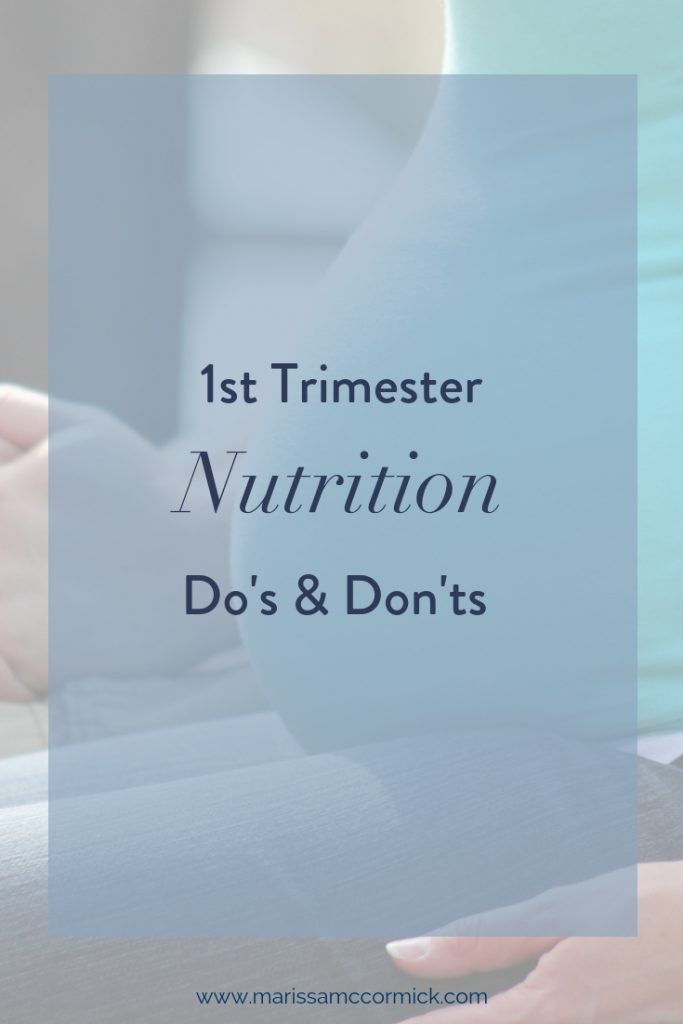
First off, CONGRATS! I’m so excited to kick-off this journey with you and tell you all about First Trimester Nutrition!
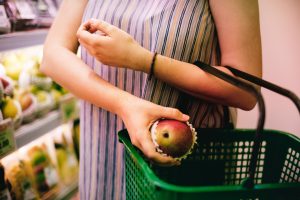
You’re just starting on this pregnancy journey…and let me guess, you’re excited, overwhelmed, anxious, nervous, and just outright exhausted!! You may even be feeling a little bloated, nauseous, or worse yet, struggling with headaches and morning sickness. While not uncommon to feel this way in trimester one, it’s still not fun and we can use all the help we can get!
If you’re anything like me, you’re craving hard on junky carbs and sweets, but also feeling a bit guilty knowing you should be eating extra nutritious during this critical time period of growing a human.
I’ve got ya covered, Mama! Eating well during your first trimester doesn’t need to be overwhelming and complicated (you’ve got enough of that going on). It does need to be extra nutritious and full of superfoods that will give you the energy and nutrients your body needs right now.

In trimester one…
you don’t actually need any more calories than before you were pregnant. Baby is not big enough to use any extra calories at this point, so sorry, no “eating for two.”
You will however need extra hydration, as your body is gearing up blood volume and amniotic fluids. So keep a water bottle on hand at all times.
You’ll also have a higher need for certain vitamins and minerals, including: folate, iron, iodine and vitamin D to help prevent neural tube defects, supply blood and oxygen to your baby, and build baby’s bones and teeth! Taking a *prenatal supplement will help ensure you are receiving adequate amounts of these important vitamins and minerals.
So let’s dive in with a few simple “rules:”
DO:
-
Focus on a getting a variety of fruits, vegetables, whole grain, lean protein and dairy. Let me break this down for you!
I recommend eating 3 square meals a day with 1-2 snacks. For each meal focus on filling your plate with half vegetables, ½ whole grain such as brown rice, quinoa, whole grain pasta or bread, and the other ¼ a lean protein like chicken, beef, fish or eggs (beans and legumes for vegetarian protein options).
For snacks, my ideal combo is a fruit and dairy combination. Think apple + string cheese, pineapple + cottage cheese, or yogurt + berries.
-
Load up on nutrient-rich foods, especially
Vitamin D: Vitamin D works works alongside calcium and magnesium to help build baby’s bones and teeth, as well as skin and eyesight. When pregnant, you need about 600 IUs of Vitamin D each day. Food sources include: fortified dairy products, salmon, mushrooms, egg yolks or other fortified foods. Pregnant women need 600 IU of vitamin D each day.
Folate: Folate, or synthetically known as folic acid, is a B vitamin important before and during pregnancy to prevent neural tube defects in a growing baby. Current dietary guidelines recommend that pregnant women get at least 600 mg of folate/folic acid daily. A prenatal or multivitamin with folic acid is advised daily as it can be difficult to get all you folate from food alone. Food source of folate include: avocado, leafy greens, broccoli, lentils, beans and enriched flour.
Calcium and magnesium: calcium and magnesium work together to build strong bones and teeth, and also support muscle contractions and relaxation. Magnesium has also been touted to help ease muscle cramps and aid in sleep! All women, including pregnant women, should get 1,000 mg of calcium a day, and 350-400 mg of magnesium. Food sources of calcium include: milk and other dairy products, broccoli, leafy greens. Magnesium can be food in foods like: nuts, seeds, spinach and whole grains.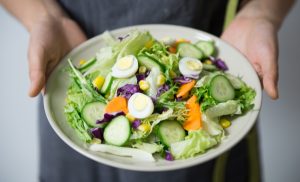
There’s more…
- Iron: Iron is an important nutrient to help make the red blood cells that deliver oxygen to organs and tissues. During pregnancy, you need extra iron to help carry blood and oxygen to your growing baby. The daily recommended amount of 27 mg. Food sources include: lean red meat, chicken, fish, dried beans and peas, and iron-fortified cereals. Iron is more easily absorbed if eaten alongside vitamin C-rich foods, like citrus fruits and tomatoes. Iron should not be taken at the same time as high fiber foods like whole grains, vegetables or bran and it can interfere with absorption.
- Iodine: Iodine is a mineral your body needs to make thyroid hormones and is essential for brain and nervous system development in a growing baby. A woman’s requirements go up during pregnancy to 220 mcg/day. Not all prenatal vitamins contain iodine, so double check. Iodine is found in dairy products, fish, eggs, some vegetables, some fortified foods, and iodized salt.
- Potassium: Potassium is a mineral used to help regulate fluid and electrolyte balance. Potassium can also help fight bloat or relieve muscle cramps. Non-pregnant and pregnant women need 4,700 mg of potassium a day. Food sources include: most fruits and vegetables, especially banana, spinach, sweet potatoes and watermelon.
AND MORE…
- Omega 3 Fatty Acids. Omega 3 fatty acids like EPA & DHA have shown an important role in brain and vision development of a growing baby. During pregnancy, you need 200 milligrams of DHA each day. The best food sources of omega 3’s include: low mercury fish like salmon and tuna, and can also be found in flaxseed and walnuts (although less bioavailable). Some foods like orange juice, milk and eggs have DHA added to them. If you’re not a big fish eater like me, opt in for a prenatal that contains EPA/DHA, or take a high-quality fish oil.
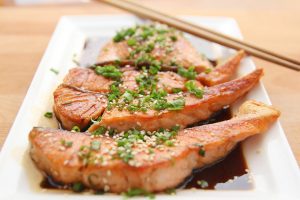
As you can see, even after listing out specific food sources for important vitamins and minerals, it really boils down to a balanced diet. Load up on fruits, vegetables, lean protein, dairy and whole grains. If you’re filling your plate with a variety of nutritious food each day, cutting back on refined and sugary foods, and supplement with a daily prenatal, you should have all your bases covered and can rest assured your baby is being “well-fed” 🙂
And a few DON’Ts:
-
Eat chemicals and junky carbs
Food loaded with additives, artificial sweeteners, or have been extremely processed typically do not come with much for nutrition. Plus, we don’t know the long-term effects of all these additives and chemicals on a growing baby. My advice is to minimize as much as possible!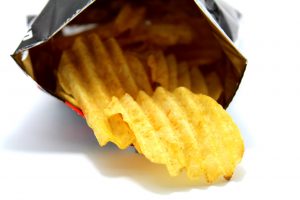
-
Eat high sodium or fatty foods
Excess intake of foods high in sodium and fat (think restaurant cheese burger and fries) can wreak havoc on your body by increasing your blood pressure and cholesterol. I’m saying to never indulge, but do so in moderation, and watch those portion sizes!! Side salad anyone?!
-
Get too full
As your baby grows, you’ll have less your in your stomach. Eating a large volume at once can cause discomfort or acid reflux.
-
Consume dangerous foods
Such as raw or under cooked meat, seafood and eggs. Unpasteurized dairy products, sprouts, and high-mercury fish like swordfish, mackerel and shark.
Don’t forget to check out my other posts on 10 things to avoid during pregnancy!
This wouldn’t be a very helpful post if I didn’t talk a minute about constipation. Constipation is one topic almost all pregnant women experience. A few tips to help minimize the discomfort are to: drink more water, up your fiber intake with leafy greens, beans, avocado, and whole grain, and consume more magnesium-rich foods like nuts, seeds and spinach. Talk to your doctor about taking a magnesium citrate supplement.
Alright, mamas you’ve got this! Happy, healthy eating 🙂
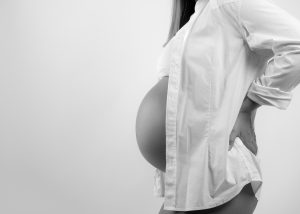
*This post contains links to Amazon.com. As an Amazon Associate I earn from qualifying purchases.
References:
- https://www.acog.org/Patients/FAQs/Nutrition-During-Pregnancy
- https://www.marchofdimes.org/pregnancy/vitamins-and-other-nutrients-during-pregnancy.aspx
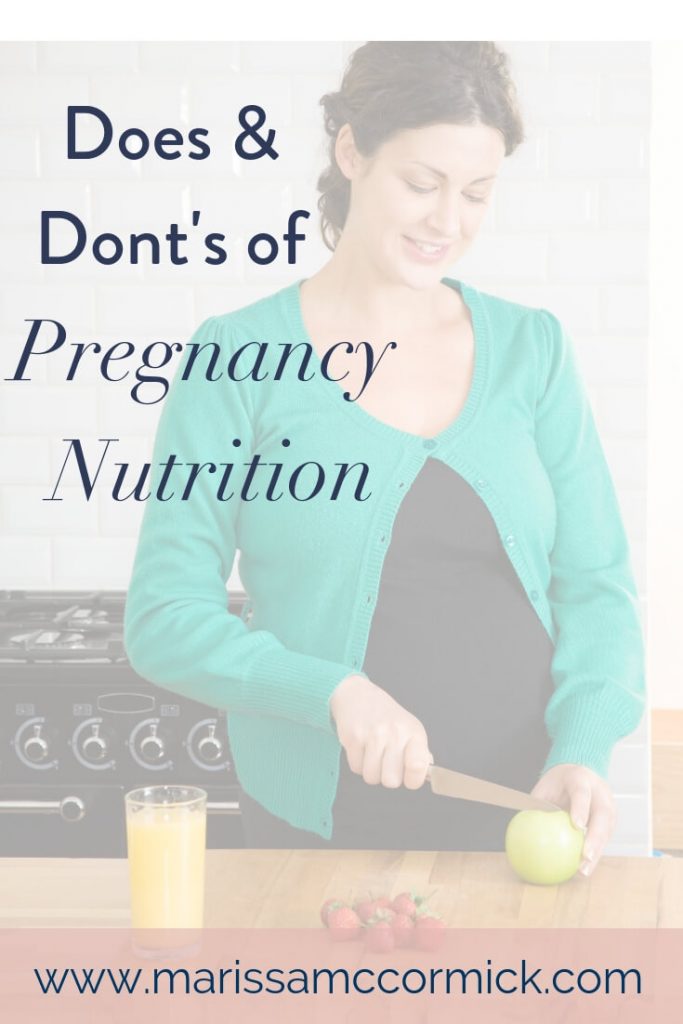
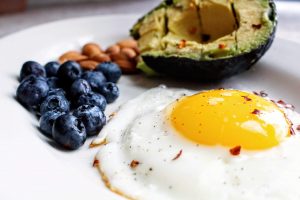
Be the first to comment